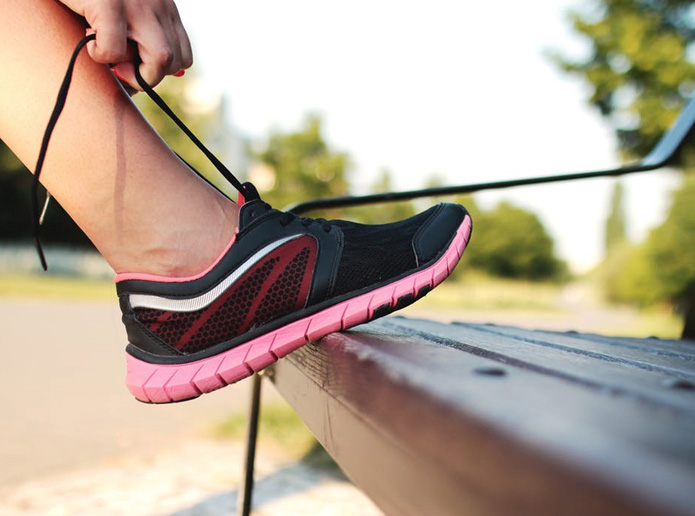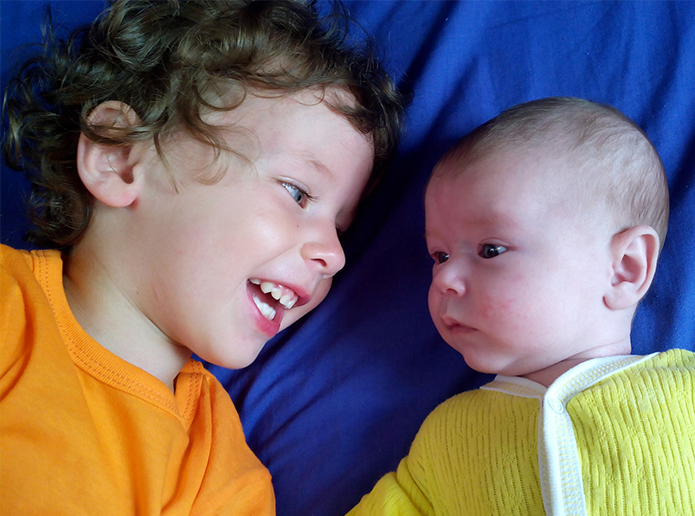Staying physically active after your baby arrives will benefit both you and your whole family. When you are fit and healthy, your ability to parent well and cope with stressful situations improves.
Try to keep yourself motivated by reminding yourself of the benefits of exercise and make time in your busy parenting schedules to stay on track.
Returning to exercise after pregnancy
- Returning to exercise can be challenging as you get used to life with a new baby. Take things slowly as you adjust to any tiredness, mood changes and any physical issues you may be experiencing, like backache or incontinence.
- Remember, getting used to exercise again could make you feel even more tired than usual to start with, but stick with it, because within two weeks your fitness and energy levels will increase.
- If you had an easy pregnancy and birth you can start light exercise, such as walking, stretching, pelvic floor and abdominal exercises, immediately.
- If you had a difficult birth or caesarean (c-section) it is important to see your doctor or midwife before starting exercise. This is usually at your six week check-up when healing is well underway and your body is getting back to normal.
- Your joints will be loose for up to three months after the birth so ease into heavy exercising to avoid injury.
What type of exercise is safe for new mums?
- Walking is a safe start. You can increase your walking intensity and distance as you feel able. Brisk walking for at least 30 minutes on most days is an easy and free way to keep fit. You can walk at any time and your baby, other children and partner can join you. Pram walking is also a good way to settle the baby while getting some fresh air.
- Other suitable exercises you can do early are: swimming, light weight training, dancing, cycling, yoga and Pilates.
- Heavier exercises, such as running, aerobics, and basketball, increase the risk of injury to your body in the first three months after birth.
- Pelvic floor exercises are important to tone and strengthen pelvic floor muscles that may have been weakened by pregnancy. You may want to consider seeing a women’s health physiotherapist.
- Your abdominal muscles will be stretched and may have separated during pregnancy. You can start gentle tummy toning exercises but you should wait until the gap between your abdominal muscles is closed before you do strenuous exercises such as sit-ups. Other exercise ideas with pictures can be found in the postnatal exercise pamphlet.
- It is important you warm up before any exercise to avoid injury. You should start your warm up with gentle activity then complete some simple muscle stretches.
Some ideas for you to try
- If you are nervous about the level of fitness classes, join one for women who have recently given birth. These classes are often run by a physiotherapist. They run at a gentle pace and focus on increasing fitness as well as improving muscle tone and pelvic floor strength. Most are baby friendly and either involve the baby in activities or provide child care.
- Invite your partner or friend along for some social contact and to help you both keep fit.
Exercise when breastfeeding
As long as you drink plenty of water before, during, and after exercise, moderate physical activity will not affect the quality or quantity of your breast milk.
Signs to slow down
- It is normal to have some muscle soreness the day after starting a new exercise.
- Joint and muscle aches or sharp pain are signs to slow down.
- Too much exercise can use up your energy leaving you feeling tired and drained of energy for daily life.
- Vaginal discharge (lochia) is normal for about a month after birth. Signs that you may be exercising too hard include: an increase in blood flow, a change of colour from pink to red, or if bleeding starts again after stopping. Check with your doctor if you see any of these signs.
- Listen to your body and don’t push yourself too hard. If you are not feeling like exercising one day, then rest or do a lighter activity. Slow down – but don’t give up regular activity.
- Eating regularly will help prevent tiredness.
Want to know more?
The Raising Children Network – Pelvic floor care – in pictures
Pregnancy, birth and baby – Looking after your body







